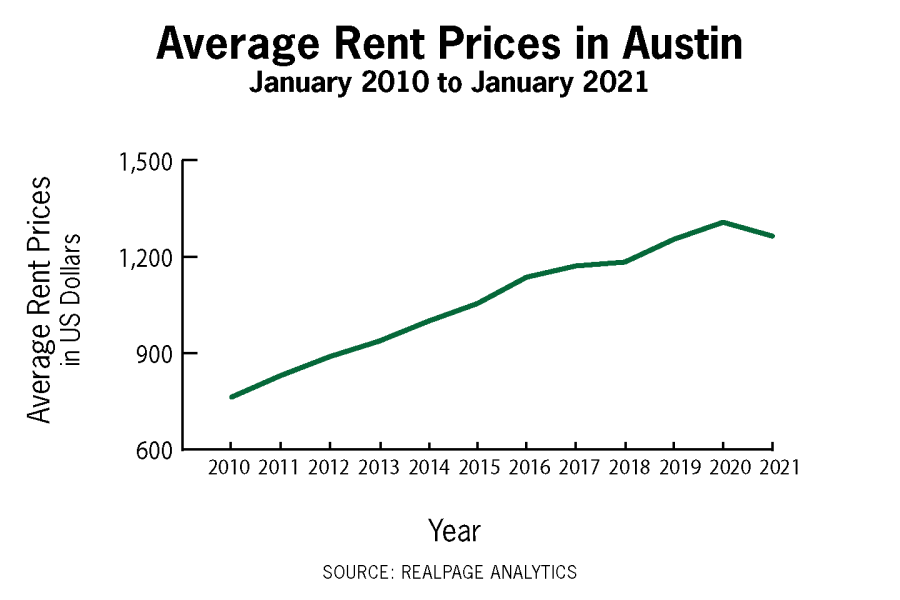UT to allocate funds for faculty housing in response to increased living costs in Austin
April 17, 2022
Editor’s Note: This article first appeared in the April 12, 2022 flipbook.
President Jay Hartzell announced he will set aside funding for faculty recruiting packages due to high housing prices in Austin at the Faculty Council meeting in late March.
The one-time allocation of funds will go to the 50 to 60 faculty members recruited for the 2022-2023 academic year, Wood said. She said incoming faculty can use the funds to offset housing costs in Austin, which have increased by over 30% in the last year. The University did not comment on the amount of the individual packages.
“We recognize the cost of living in Austin is just going up so quickly,” Wood said. “In order to attract the best faculty, we’re going to need to be more aggressive in this area.”
The funds provided by the Provost’s office are separate from the startup bonuses provided to new faculty by each school, Wood said. The allocation is a temporary solution as the President’s office looks at their budget to create a more permanent plan, such as providing housing at a reduced rate to professors, she said.
Kizzy Albritton, an associate professor of school psychology in the College of Education, started teaching at the University this year. She said housing prices increased significantly from the time she interviewed with the school to the time she received a job offer.
“As we began to look at moving and saw what was happening in the market, it was definitely challenging (and) concerning,” Albritton said.
Albritton said it is important to provide funds for faculty retention as well as faculty recruitment. She said newer hires like herself who decided to rent before purchasing a house now face the same challenges as incoming faculty.
“I was moving out of state, so I wanted to make sure I had a good understanding of the city and location before I tried to enter into buying something permanently,” Albritton said.
Stuart Reichler, an associate professor of practice in the College of Natural Sciences, said staff and faculty members have struggled with the increased living costs.
“If the cost of living continues to go up so dramatically in the city of Austin and UT is unable to provide additional salary for people, I don’t know how much longer people can afford to continue to work here,” Reichler said.
Allan Cole, deputy to the president for societal challenges and opportunities, said housing costs for both renting and owning property have affected recruiting.
“We’re looking at this from a lot of different angles, and some possible solutions will take longer to develop,” Cole said. “We want to try to provide some immediate relief, and it seems the best way to do that is to try to help people who are relocating.”
Albritton said the University should help ensure faculty can reasonably live in Austin.
“(My family) enjoys living here in the city of Austin, but we also want to be able to actually enjoy the city and be able to access all aspects of the city,” Albritton said. “One main way of accessing that is being able to say that you’re a homeowner, and it would be wonderful if there was some support from the University.”












